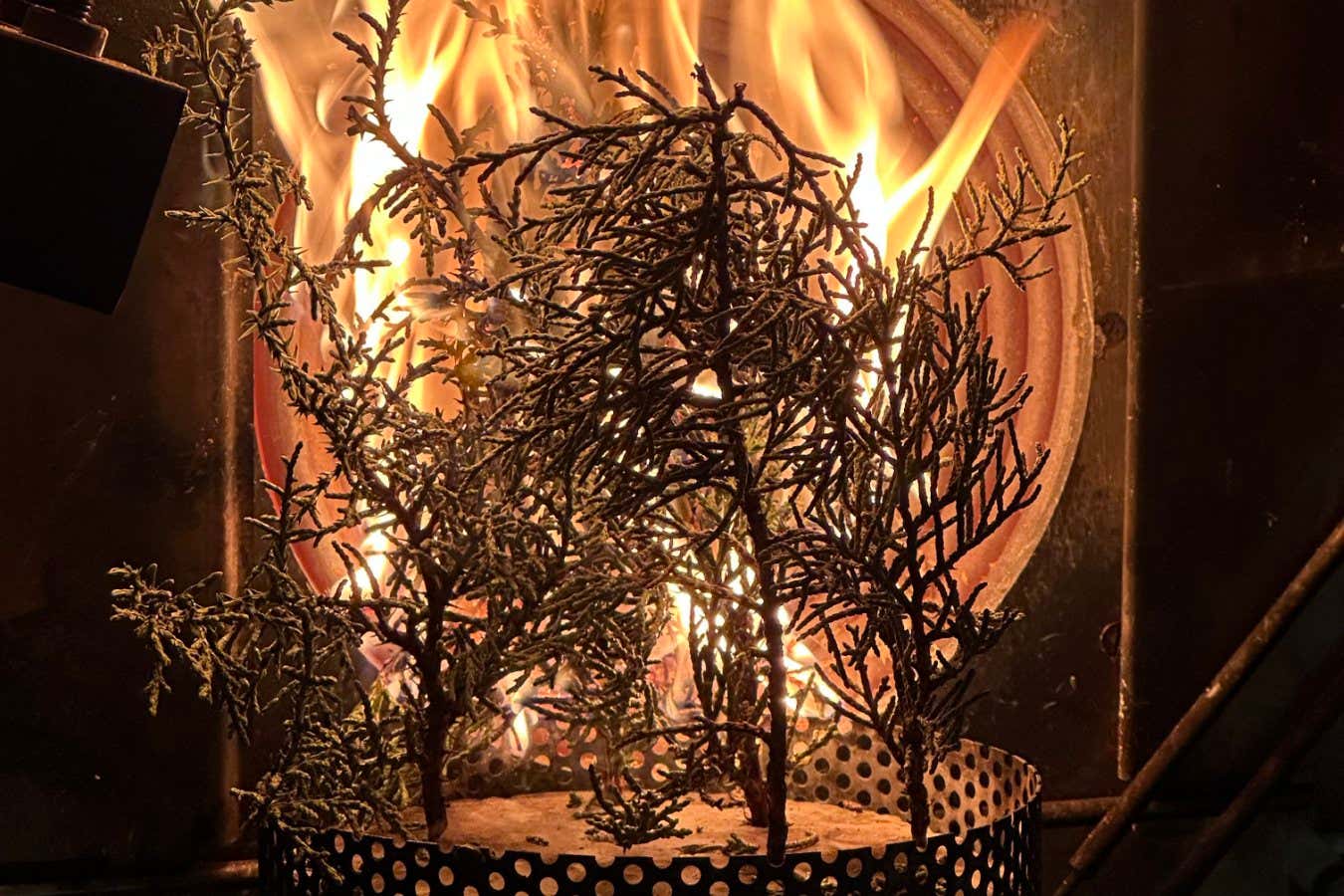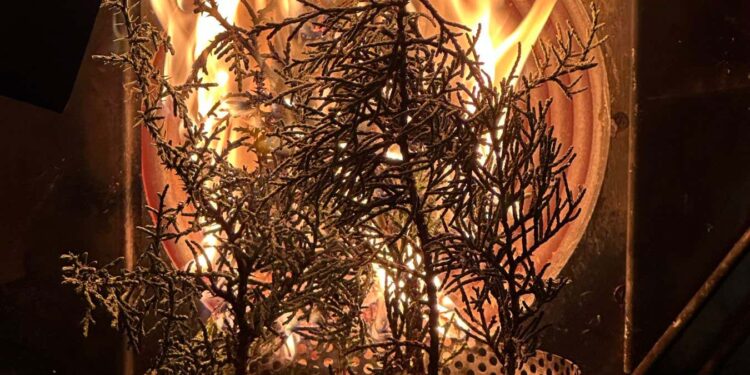
A flammability test on a western juniper tree (Juniperus occidentalis)
Rebecca Koll
Tucked away in a laboratory at the University of Exeter in the UK, Rebecca Koll is setting conifer trees alight in the hope of answering burning questions about the future of forest fires.
Wildfires are increasing in severity around the world as the climate warms. This is largely driven by increasing heat, drought and wind speeds making trees more likely to burn when sparks fly.
But Koll is among a group of researchers who suspect it isn’t just drought and other direct effects that are boosting the risk of fires. “Is climate change actually changing the plants themselves? We’re pretty sure it is,” she says.
She believes the leaf chemistry of trees is being altered by climate stressors such as increasing ultraviolet radiation, which makes plants produce more airborne chemicals – known as volatiles – in a type of stress response.
Studies have shown that exposing some food and medicinal crops to higher levels of UVB triggers an increase in volatile compounds in their leaves. Separate analysis indicates that high levels of volatiles in conifers, such as pine trees, increase their flammability.
Although international efforts to repair the ozone layer are helping to protect the planet from UV radiation, research suggests the effects of climate change, including an increase in hot, clear days in northern and eastern Europe, has caused an increase in the amount of UV radiation hitting ground level in recent years. Models suggest this problem could become more acute in the second half of the century.
Koll is now working on a project to expose 87 coniferous tree species to increased levels of UVB to assess any changes in their leaf chemistry and flammability. The trees are being kept for weeks at a time in climate-controlled chambers with optimum temperature and watering schedules but varying levels of UVB – up to triple the exposure trees experience in today’s climate. After either four or eight weeks of treatment, the trees are analysed and then burned to assess their flammability.
“We’ve got it set to be essentially perfect. Super happy, super easy conditions for these plants,” says Koll. “They’re having the best life. Except we’re just absolutely zapping them with radiation.”
She expects to uncover changes in the plants’ leaf chemistry. In the chamber, the treated trees are already displaying yellowing patches in the place of healthy greenery. “The way that plants respond in other tests, in other experimentation… it does change the leaf chemistry,” she says.
The question is whether these changes result in enhanced flammability, and whether this could help to explain the increasing severity of forest fires. “We’ve already increased UV in the natural environment,” says Koll. “So it could be an explanation, that it’s not just drought, it’s actually that we’re changing the plants themselves by how we’re impacting the climate.”
Discovering the answer could help scientists better understand the wildfire risk in coniferous forests, which dominate much of the northern hemisphere. “This is actually why your house may burn down,” says Koll. “The actual nature, the natural environment of the surrounding area, gets more flammable.”
The project is one of the first experiments under way at the University of Exeter’s Global Meteorological Simulator, a new facility for plant research that opened earlier this year. The site’s climate-controlled chambers can simulate wind, rain, heatwaves and changing atmospheric conditions to investigate how plants and insects cope with rapid climate change.
Matthew Robson at the University of Cumbria in the UK says the project could prove that changes in leaf compounds are an important factor in tree flammability for certain species. “The relative importance of these effects of climate on volatile and flammable carbon-rich compounds… is not yet well studied – which is something that makes the current research at the University of Exeter exciting,” he says.
Topics:
Source link : https://www.newscientist.com/article/2491793-trees-may-be-getting-more-flammable-because-of-climate-change/?utm_campaign=RSS%7CNSNS&utm_source=NSNS&utm_medium=RSS&utm_content=home
Author :
Publish date : 2025-08-12 11:00:00
Copyright for syndicated content belongs to the linked Source.














